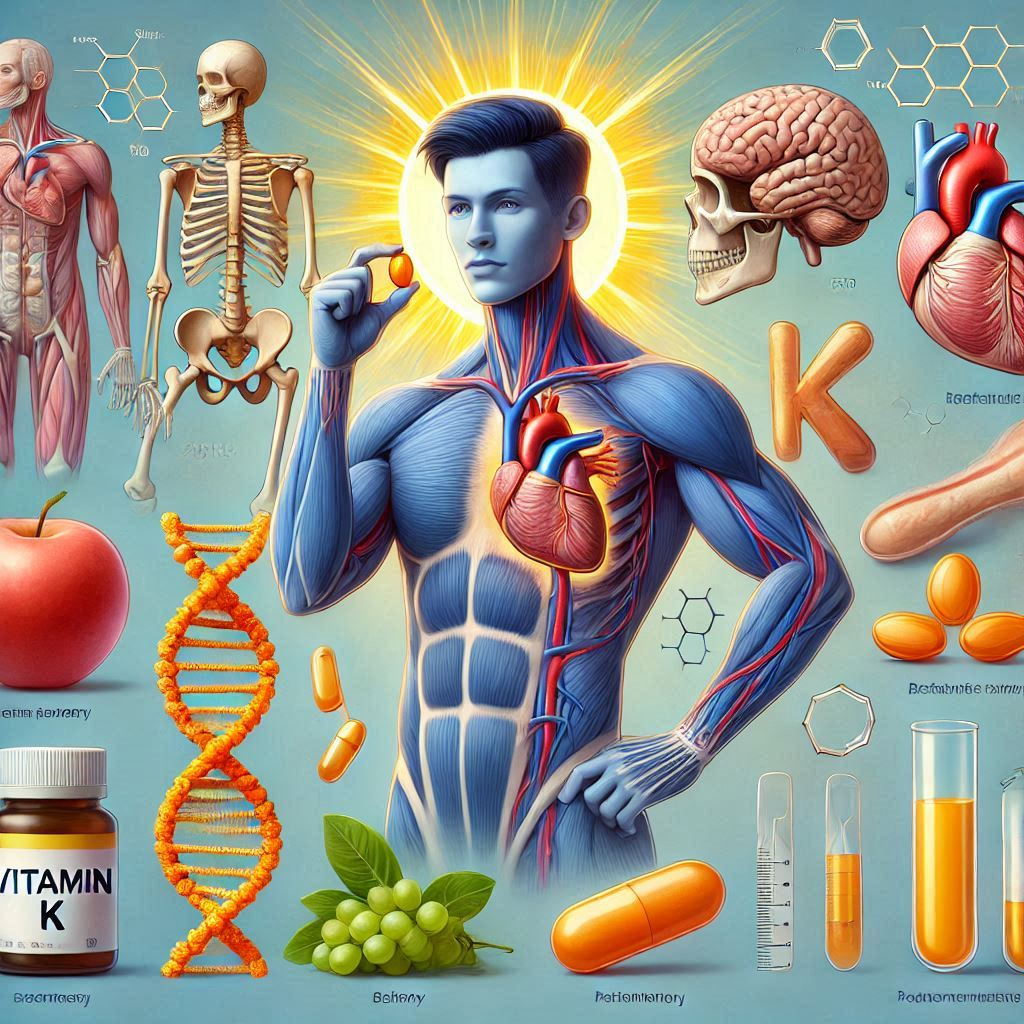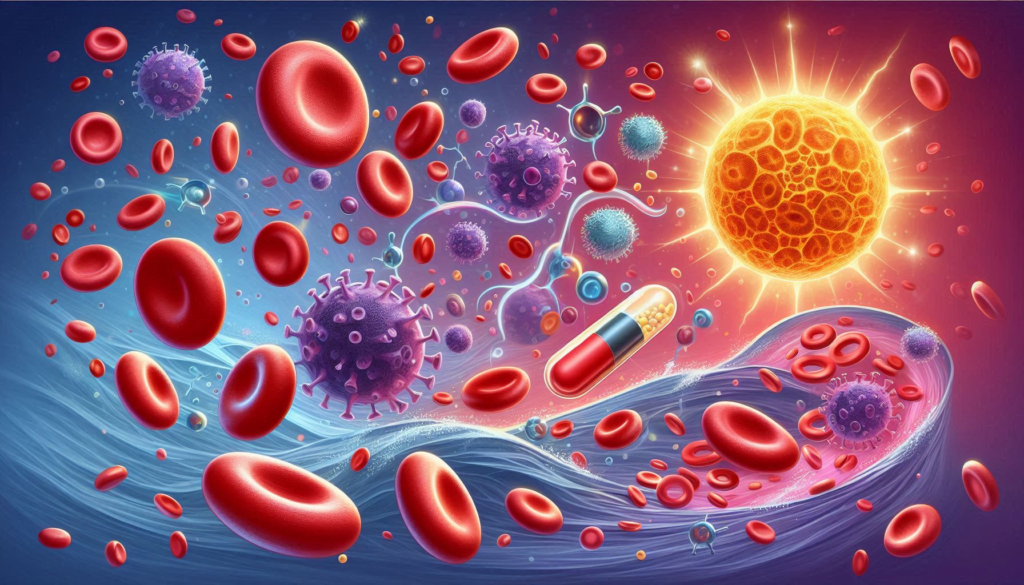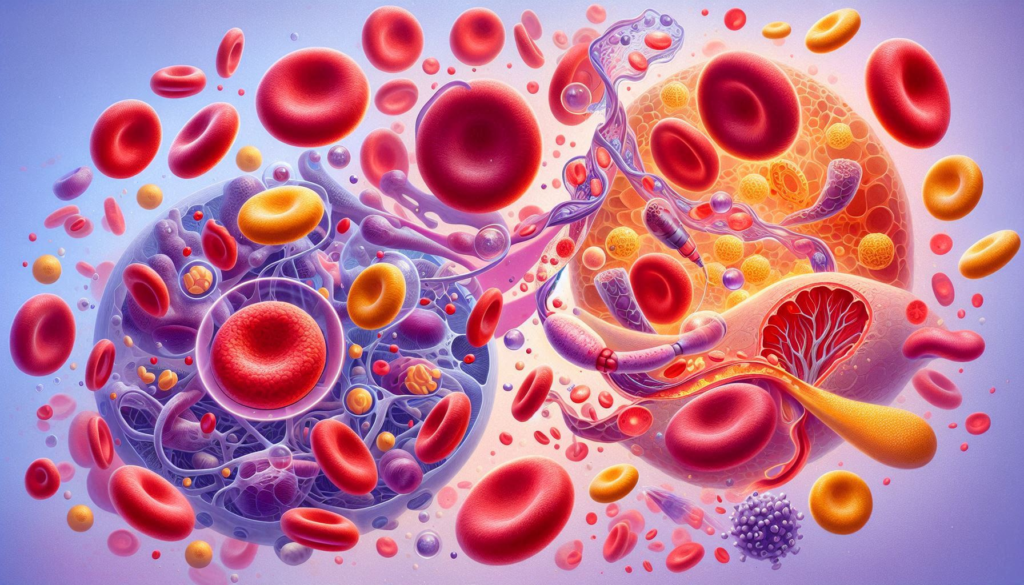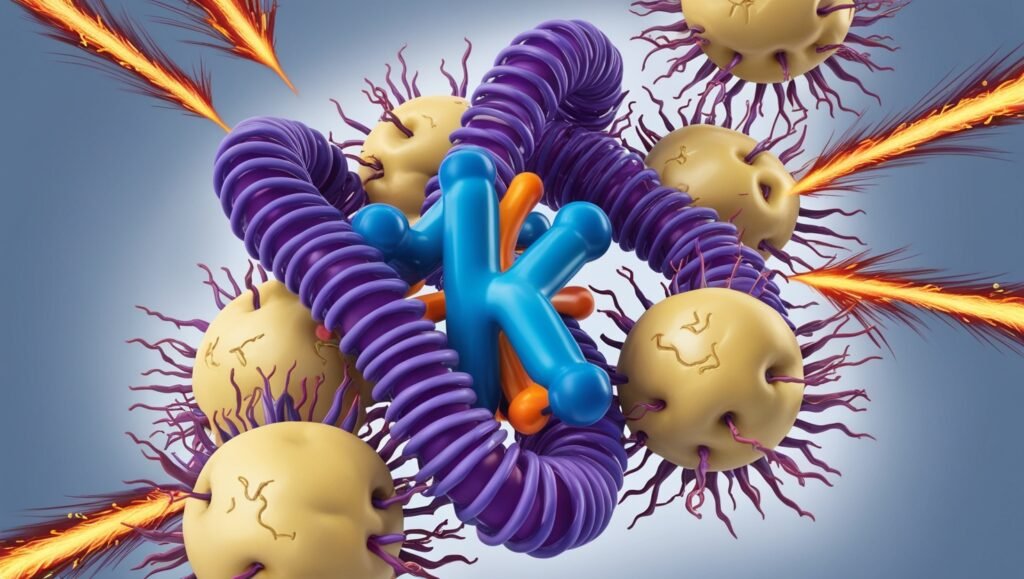
“10 Essential Roles of Vitamin K in the Body”
10 Essential Roles of vitamin K for Your Health
Discover the vital role of vitamin K in your body and its impact on overall health and wellness. Learn more today!

Read also: “Vit.E: 10 Surprising Health Benefits.”

Introduction
Overview of Vitamin K and Its Importance
Vitamin K is a crucial nutrient that plays a vital role in various bodily functions. It is essential for blood clotting, bone health, heart health, and more. Understanding the importance of Vitamin K can help you appreciate its role in maintaining overall health and well-being.
Brief Mention of the 10 Essential Roles
In this article, we will explore 10 essential roles of Vitamin K in the body, including its impact on blood clotting, bone health, heart health, antioxidant properties, calcium regulation, immune support, skin health, cognitive function, nutrient absorption, and anti-inflammatory effects.

Role 1: Blood Clotting
Explanation of Vitamin K’s Role in Blood Clotting
Vitamin K is essential for the synthesis of proteins that regulate blood clotting. Without adequate Vitamin K, the blood would not clot properly, leading to excessive bleeding and other complications.
Importance of Proper Blood Clotting for Health
Proper blood clotting is crucial for wound healing and preventing excessive blood loss. Vitamin K ensures that the clotting process occurs efficiently, protecting the body from potential harm.

Role 2: Bone Health
How Vitamin K Supports Bone Mineralization
Vitamin K plays a key role in bone mineralization by activating proteins that bind calcium to the bone matrix. This process strengthens bones and helps maintain their density.
Benefits of Vitamin K for Preventing Osteoporosis
Adequate vitamin K intake can help prevent osteoporosis by promoting bone health and reducing the risk of fractures. It is especially important for postmenopausal women and older adults.
Role 3: Heart Health
Vitamin K’s Role in Preventing Arterial Calcification
Vitamin K helps prevent the calcification of arteries by regulating calcium deposition. This reduces the risk of atherosclerosis and other cardiovascular diseases.
Benefits for Cardiovascular Health
By preventing arterial calcification, Vitamin K supports overall cardiovascular health and reduces the risk of heart attacks and strokes.

Role 4: Antioxidant Properties
Explanation of Vitamin K’s Antioxidant Effects
Vitamin K has antioxidant properties that help protect cells from oxidative damage caused by free radicals. This protection is essential for maintaining cellular health and preventing chronic diseases.
How It Helps Protect Cells from Damage
The antioxidant effects of Vitamin K neutralize free radicals, reducing oxidative stress and preventing damage to cells and tissues.
Role 5: Calcium Regulation
Vitamin K’s Role in Regulating Calcium Levels in the Body
Vitamin K regulates calcium levels by activating proteins that control calcium deposition in bones and prevent its accumulation in soft tissues.
Importance for Bone and Cardiovascular Health
Proper calcium regulation is essential for maintaining strong bones and preventing cardiovascular diseases. Vitamin K ensures that calcium is used effectively in the body.
Role 6: Immune Support
How Vitamin K Supports the Immune System
Vitamin K plays a role in supporting the immune system by promoting the production of proteins involved in immune responses.
Benefits for Overall Health and Disease Prevention
A healthy immune system is crucial for preventing infections and diseases. Adequate vitamin K intake supports immune function and overall health.
Role 7: Skin Health
Vitamin K’s Role in Maintaining Healthy Skin
Vitamin K is important for maintaining healthy skin by promoting proper blood flow and reducing inflammation.
Benefits for Wound Healing and Reducing Bruising
Vitamin K helps speed up the healing process of wounds and reduces bruising by supporting blood clotting and tissue repair.
Role 8: Cognitive Function
Explanation of Vitamin K’s Impact on Brain Health
Vitamin K plays a crucial role in brain health by participating in the synthesis of sphingolipids, which are vital components of brain cell membranes. It also helps protect neurons from oxidative stress and inflammation.
Benefits for Cognitive Function and Memory
Adequate vitamin K intake is associated with better cognitive function and memory. It supports brain health by promoting the formation of myelin, which insulates nerve fibers and enhances signal transmission.
Role 9: Nutrient Absorption
How Vitamin K Aids in the Absorption of Other Nutrients
Vitamin K helps in the absorption of essential nutrients, particularly calcium and vitamin D. It activates proteins that bind calcium, ensuring it is effectively utilized in the body.
Importance for Overall Health and Well-Being
Proper nutrient absorption is crucial for maintaining overall health and wellbeing. Vitamin K ensures that the body can efficiently absorb and utilize vital nutrients, supporting various bodily functions.
Role 10: Anti-Inflammatory Effects
Explanation of Vitamin K’s Anti-Inflammatory Properties
Vitamin K has antioxidant properties that help reduce inflammation in the body. It inhibits the production of pro-inflammatory cytokines, which are molecules that promote inflammation.
Benefits for Reducing Inflammation and Supporting Health
By reducing inflammation, Vitamin K helps protect against chronic diseases such as arthritis, cardiovascular diseases, and certain cancers. It supports overall health by maintaining a balanced inflammatory response.
Conclusion
Recap of the 10 Essential Roles of Vitamin K
- Blood Clotting
- Bone Health
- Heart Health
- Antioxidant Properties
- Calcium Regulation
- Immune Support
- Skin Health
- Cognitive Function
- Nutrient Absorption
- Anti-Inflammatory Effects
Encouragement to Include Vitamin K-Rich Foods in Your Diet
Including vitamin K-rich foods in your diet can help you reap the numerous health benefits it offers. Foods such as leafy greens, broccoli, Brussels sprouts, and fermented foods are excellent sources of vitamin K.
Final Thoughts on the Importance of Vitamin K for Overall Health
Vitamin K is essential for maintaining overall health and well-being. By understanding its various roles in the body and ensuring adequate intake, you can support your health and prevent potential deficiencies.
Including vitamin K-rich foods in your diet can help you reap the numerous health benefits it offers. Foods such as leafy greens, broccoli, Brussels sprouts, and fermented foods are excellent sources of vitamin K. Vitamin K is essential for maintaining overall health and well-being. By understanding its various roles in the body and ensuring adequate intake, you can support your health and prevent potential deficiencies.





2 Comments
Pingback:
Pingback: